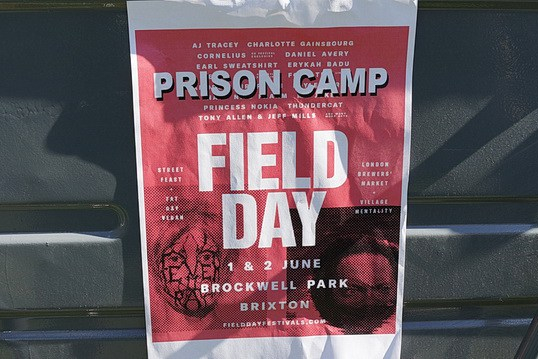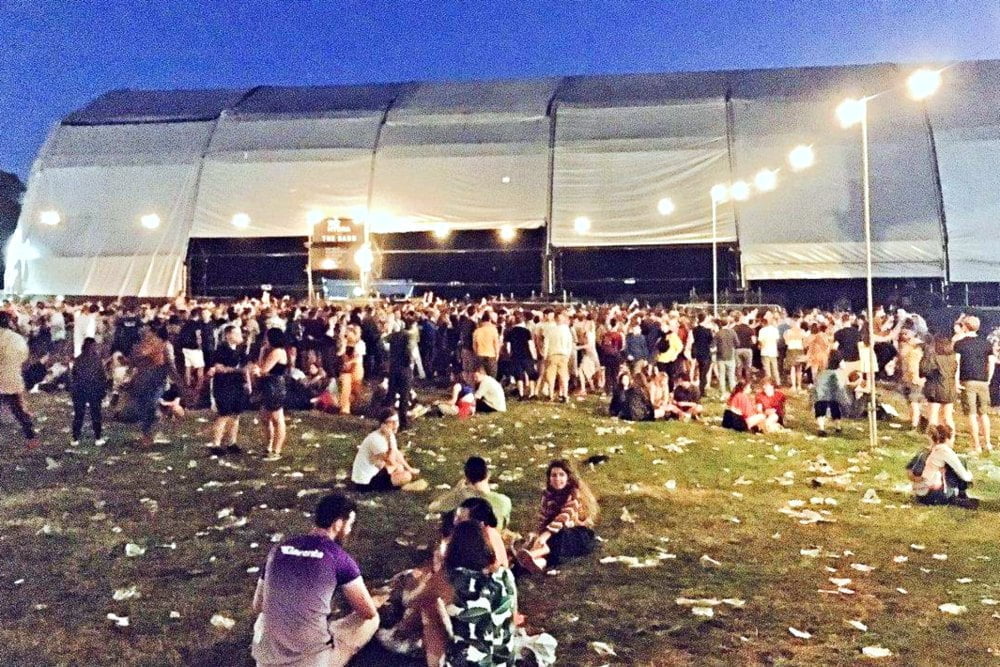Profit-seeking festival organisers are emptying people’s wallets – and often endangering lives.
Anyone who has been to a music festival recently will be increasingly aware of how increased commercialisation is affecting this part of culture – sometimes with dangerous results.
For example, earlier this summer there was a near mass crush at Field Day 2018 in Brockwell Park in South London. The organisers clearly oversold tickets in order to maximise their takings, ignoring venue capacity limits. Combined with irresponsible scheduling of acts, this led to hundreds of people being trapped and crushed in an enclosed tent in the build up to one of the headline artists.
Organisers desperately pleaded to the crowd to ‘take up less space’. Festival goers described the event as ‘bloody scary’ and ‘a disaster waiting to happen’. Whilst the organisers claimed to have safety as their top priority, this mismanagement put people in real danger.
Field Day itself was only moved to Brockwell Park from its usual (larger) location, Victoria Park in East London, to make way for the hyper-commercialised All Points East festival. To attend this event for just one day would set you back £60 for the ticket.
This is not the first time the issue of public safety has become a concern at music festivals in the past few years. Just last summer, again at Brockwell Park, there was another near crush at the Sunfall festival. The crowd eventually panicked, with some even jumping over the fences to avoid being hurt.
Earlier this year, at Mutiny festival in Portsmouth during the hot May weather, the price of water was put at a ludicrous £2.50 per bottle. Attendees were forced to pay this extortionate rate or risk dehydration, as the public taps had stopped working. Twelve were taken to hospital and two died at this festival.
Inflated prices; heightened danger
 These safety concerns have arisen because of the general trend music festivals are going through. Far from being a large celebration of music, festivals these days are a well-tuned profit making machine, designed to squeeze as much hard-earned cash out of revellers as possible. This is the reason behind the unaffordable prices: from the tickets to the food and drink to the shoddy merchandise.
These safety concerns have arisen because of the general trend music festivals are going through. Far from being a large celebration of music, festivals these days are a well-tuned profit making machine, designed to squeeze as much hard-earned cash out of revellers as possible. This is the reason behind the unaffordable prices: from the tickets to the food and drink to the shoddy merchandise.
A weekend at Latitude now costs over £213, not even counting the money you’d be forced to pay to eat and drink whilst you’re there. This ticket price represents a 103% increase since the first Latitude in 2006. General inflation over the same period amounts to 29%. Needless to say, ticket prices sing exactly the same song across the board.
Of course higher prices do not mean higher quality. Take the Fyre festival – a festival for the ultra-rich which was due to take place in the sunny Bahamas in 2017. Day tickets started at $1,500; luxury weekend camping cost $12,000. But the festival was a disaster. Musicians dropped out one-by-one, leaving only one act to play for a few hours. And this is not to mention the chronic lack of infrastructure and staff.
The number of super-rich people affected by this, however, clearly pales in comparison when compared to the huge numbers of festival goers around the world who are – at the very least – always ripped off, and who are often put in some danger.
Capitalism crushes culture
Young people save up their earnings for months to attend festivals, often providing the only escape from their stresses that they can enjoy for the summer. And those not fortunate enough to have this kind of income simply cannot afford to attend.
This fact has not escaped the minds of festival organisers. They can recruit an army of volunteers from amongst this pool of young people to do most of the ground-level running of the festival, offering them the chance to see a handful of music acts in return. Volunteers are expected to work multiple 8-hour shifts, unpaid in the heat, handling everything from car parking to fire safety – all with little training and guidance.
This is just another way for the organisers to increase their profits, by utilising this free labour instead of paying workers who perhaps might demand better conditions, as well as costing the organisers wages.
The fact of the matter is that festivals under capitalism are primarily ventures intended to make money. As long as this is the case, these events will never be fundamentally about music or culture but about profit for the companies and corporations involved. Only those who make the profits will have reason to celebrate once the festival is over. Everyone else is forced to suck it up and pay through the nose to enjoy a small slice of live music, comedy and culture.
This is the reason festivals are becoming more expensive, more commercialised and ultimately more exploitative. Anyone who genuinely cares about music should fight to liberate it from the stifling hand of capitalism. This is only possible by fighting to change society as a whole.






